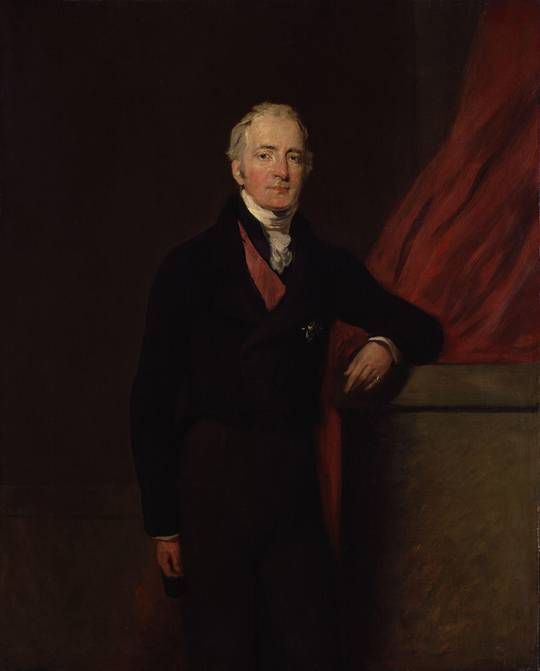Henry Bathurst (1762-1834) Third Earl Bathurst from 1794. Secretary of State for War and the Colonies, 1812-27. Bathurst was the son and grandson of distinguished Tories. The second Earl had been Lord Chancellor and Lord President of the Council under North. The first Earl had been one of twelve new Tory peers created by Queen Anne to pass the Treaty of Utrecht, becoming an indomitable keeper of the Tory flame in opposition for six decades before receiving an earldom from North at the age of 88.
The third Earl was educated at Eton, and Christ Church, where he was a contemporary of Grenville. He was elected MP for Cirencester in his father’s interest in July 1783 but refused a seat on the Admiralty Board from North, since he disapproved of the Coalition. At the end of the year he joined Pitt in opposing the Whigs and was appointed a Lord of the Admiralty. He did not, however, join the Cabinet until 1807 as President of the Board of Trade and Master of the Mint. After a brief period as Foreign Secretary under Perceval, while waiting for Wellesley to return to England, he was appointed Secretary of State for War and the Colonies by Liverpool, where he served until 1827 before resigning on Canning’s appointment as Prime Minister. He returned to office as Lord President of the Council under Wellington.
Bathurst continued to prosecute the Peninsular War successfully and also, with Sir George Prevost1, the Commander-in-Chief in Canada, organised a successful defence of Canada in the War of 1812 on a shoestring budget. He was a High Anglican and humanitarian conservative, favouring abolition of slavery and the slave trade but opposing Catholic Emancipation mildly and parliamentary reform strongly, also opposing Canning’s foreign policy after 1822. He was a diffident speaker but a good writer and a hard-working, capable administrator in probably the most laborious department of government. He was also one of the social centres of the Cabinet either in London or at his estate in Cirencester. From time to time he played a useful role in sorting out difficulties within the Royal Family, since he had Liverpool’s confidence and a friendly relationship with the Prince Regent.
Mrs Arbuthnot generally liked Bathurst but wrote of him in 1822:
He is a very bad minister for present times, he likes everything to go in the old way, likes a job for the sake of a job, not to get money into his own pocket for there cannot be a more disinterested man, but he hates all innovations and would have done perfectly and been considered a very upright man in the time of Sir Robert Walpole.2
[1] George Prevost (1767-1816). 1st Baronet from 1805. Colonel, 1798. Major General, 1805. Lieutenant General, 1811. Governor of Nova Scotia, 1808-11. Governor General of the Canadas, 1812-15.
[2] Bamford and Wellington, The Journal of Mrs. Arbuthnot, 1820-32, Vol. 1, p. 159.
